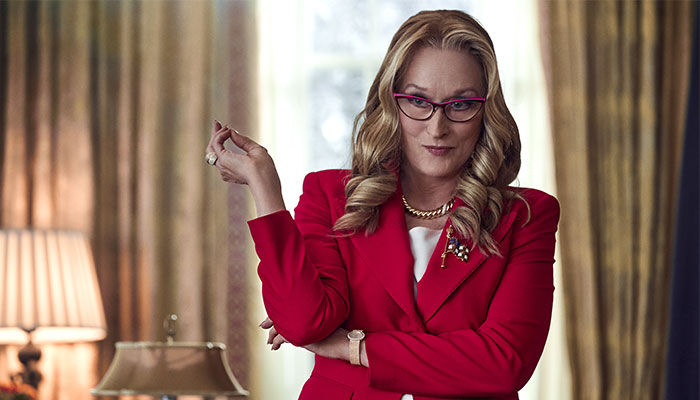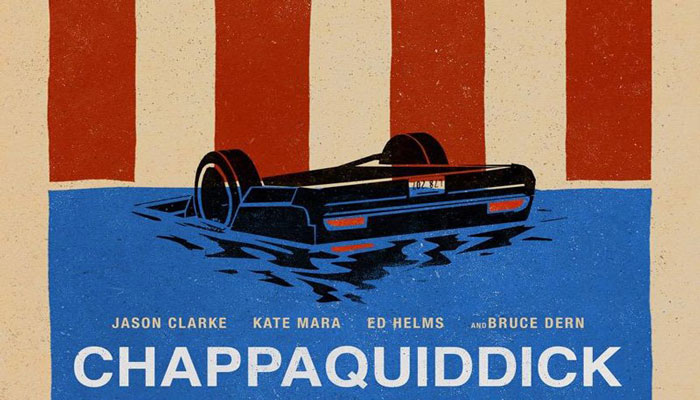End-of-the-world disaster movies often serve as allegories of current social anxieties or ideological-political concerns. Such films usually focus on the fear and panic gripping a population facing annihilation, the difficulties politicians have in co-ordinating a response, and the heroic efforts of (usually American) military heroes to face the threat with courage (and extreme firepower), defying all odds to save the world (think Deep Impact (Mimi Leder, 1998) or Armageddon (Michael Bay, 1998), both of which feature a comet or meteor about to hit the Earth).
Four stars: philosopher Robert Sinnerbrink unpicks themes of climate inaction and selective hearing of governments towards scientists highighted in the popular Netflix satire Don't Look Up.
Adam McKay’s satirical apocalyptic disaster movie, Don’t Look Up, which critics have taken as an allegory of climate change inertia, explores a very different, but scarily familiar scenario.
What if, when faced with the scientifically credible warning of an existential threat, politicians and the public reacted with indifference or denialism? What if politicians treated scientists either as inconvenient truth-tellers who can be demonised or dismissed, or as convenient ‘influencers’ who might be co-opted into a media narrative designed to gain political advantage?
Conspiracy theorists vs truth-tellers
How might public opinion be manipulated in order to block collective action? Don’t Look Up uses the discovery of a large meteor hurtling towards the Earth (a ‘planet-killer’, we are told), to explore these questions. It stages a darkly comic but plausible version of how, in our media-saturated, ‘post-truth’ political world, governments and the public might spectacularly fail to respond to a catastrophic global threat.
Screenwriter and director McKay has pedigree in dealing with complex issues in an accessible way. The Big Short (2015) creatively tackled the global financial crisis, while Vice (2018) presented a blackly comic/dramatic portrait of neocon Vice-President Dick Cheney. Don’t Look Up features Hollywood stars Jennifer Lawrence (as PhD candidate Kate Dibiaski, who discovers the killer comet),

All about me: Meryl Streep plays self-serving, science denier, US President Janie Orlean.
Leonardo DiCaprio (as ‘sexy scientist’ Randall Mindy, who is not only ‘seduced’ by media fame but naively cooperates with the government), Meryl Streep as implacably self-serving President Janie Orlean, Cate Blanchett as Brie Evantee, an immaculately packaged but vapid TV talk show host, and Mark Rylance as Sir Peter Isherwell, a disturbingly comic amalgam of several ruthless social media/communication technology entrepreneurs with vast political and economic clout.
The film follows Dubiaski and Mindy’s misguided attempts to tell the truth about the comet to the government, who brush them aside, to warn the public on live TV, where they become instant social media/internet memes, and highlights their fraught attempts to persuade politicians and the public of the need to avert disaster before the comet strikes. Although it has proven popular with the public, and with climate scientists and activists (who recognise their own predicament in the film), media critics have been less convinced, describing it as too heavy-handed, ‘smug’, and condescending in its satirical critique of social media, corporate power, the Trumpian turn in US politics, and conspiracy theory gullibility.
Although critics have rightly seen the film as a climate change allegory, Don’t Look Up deals more broadly with the intersection between the media, politics, big business, and science activism. It questions the pervasive science scepticism and demonization of ‘expert culture’ within our ‘post-truth’ world. It examines the pernicious nexus between the media, governments, business, and populist politics that have created an environment where the circulation of ‘fake news’, infotainment, and political spin neutralises and undermines factual reporting, responsible democratic debate, and the possibility of co-ordinated political action.

Disturbingly familiar: Don't Look Up satirises today's headline-grabbing info-tainment TV shows with Cate Blanchett playing the vapid Brie Evantee.
Satire can use comic parody but also needs to sufficiently resemble its object in order to be a plausible form of social critique. It makes sense, then, that the film offers a broad-brush comedic portrayal of contemporary ‘post-truth’ media politics and science denialism.
Art imitating life
Given the convergence of climate change scepticism with other forms of populist scepticism -- concerning COVID vaccinations, for example -- Don’t Look Up’s satirical parody seems entirely appropriate to the task of criticising the failure of social mobilisation and political action in our post-truth world.
It isn’t clear, moreover, that Don’t Look Up is exaggerating much. President Janie Orlean seems decidedly moderate compared with Donald Trump; the fictitious morning TV Show The Daily Rip seems benign compared with Fox & Friends; Sir Peter Isherwood’s plans to mine the comet for rare earth minerals seems strangely plausible compared with Elon Musk’s planetary colonisation fantasies.
Don’t Look Up’s comic satire not only functions as a cultural safety valve in response to these social and political deadlocks, it underlines the inconvenient truth that our democratic institutions are failing us badly in the face of looming planetary threats.
Robert Sinnerbrink is Associate Professor of Philosophy and an ARC Future Fellowship recipient.



